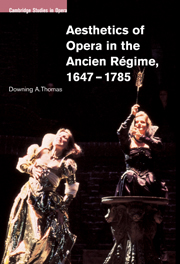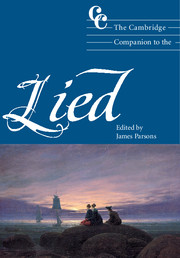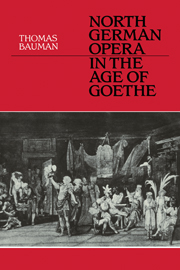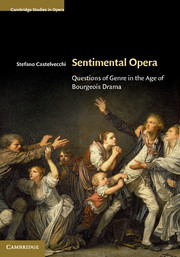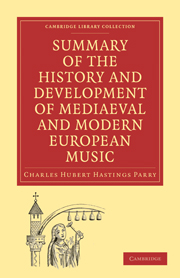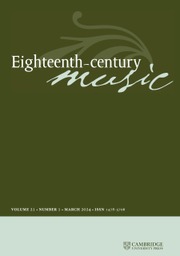Aesthetics of Opera in the Ancien Régime, 1647–1785
Part of Cambridge Studies in Opera
- Author: Downing A. Thomas, University of Iowa
- Date Published: February 2009
- availability: Available
- format: Paperback
- isbn: 9780521100977
Paperback
Other available formats:
Hardback
Looking for an examination copy?
This title is not currently available for examination. However, if you are interested in the title for your course we can consider offering an examination copy. To register your interest please contact [email protected] providing details of the course you are teaching.
-
This is the first study to recognize the wider picture of opera within early-modern French culture. Downing Thomas considers the place of music within a cultural environment--the employment of music by Louis XIV as a symbol of absolutism; the use of music as a statement against the monarchy; and the long-term development of opera as a reflection of humanism. Thomas examines key works by Lully, Rameau, and Charpentier, among others, and extends his reach from the late seventeenth century to the end of the eighteenth.
Read more- First study to examine the relationship in close detail of opera to French social and cultural history
- Written by leading scholar of French opera
- Covers period of French history from Louis XIV to the Revolution
Reviews & endorsements
"It goes beyond strict musical analysis and examines these oeuvres and their contexts from a broad cultural perspective, drawing on the writings of contemporary philosophers and commentators." Opera Quarterly
See more reviews"This book is not an easy read, but any time spent between its covers will be amply rewarded.... a fluently written study that moves smoothly across the decades to become a cultural history of French opera from its origins to the Revolution.... Highly recommended." Choice
"Like a handy toolbox for singers and teachers, Miller's book provides detailed, well-rounded discussions of vocal technique, pedagogical issues, and performance concerns in one place, a rare scenario. As wel, the appendices are excellent for quick reference about vocal repertoire and IPA symbols. A must-have for anyone involved in the vocal field." -- Opera Journal
"Thomas provides an excellent distillation of the conflict between seventeenth-century writers who championed staged tragedy and those who welcomed and defended tragédie en musique. Downing Thomas' book is an important addition to the study of the development of French opera, particularly for its blend of historical, philosophical, cultural, and critical studies." Opera Today, Deborah Kauffman, University of Northern Colorado
"Rather than answering all the questions raised closing off all possibilities, Thomas opens up new insights, draws together interesting primary sources, and engages in dialog with secondary literature from several disciplines." Notes
Customer reviews
Not yet reviewed
Be the first to review
Review was not posted due to profanity
×Product details
- Date Published: February 2009
- format: Paperback
- isbn: 9780521100977
- length: 420 pages
- dimensions: 229 x 152 x 24 mm
- weight: 0.61kg
- contains: 9 b/w illus. 13 music examples
- availability: Available
Table of Contents
Introduction
Part I. French Opera in the Shadow of Tragedy:
1. Song as performance and the emergence of French opera
2. The opera king
3. The ascendance of music and the disintegration of the hero in Armide
4. The disruption of poetics I: Medee's excessive voice
5. The disruption of poetics II: Hippolyte et Aricie and the reinvention of tragedy
Part II: Opera and Enlightenment: From Private Sensation to Public Feeling:
6. Heart strings
7. Music, sympathy, and identification at the Opéra-Comique
8. Architectural visions of lyric theater and spectatorship
9. Opera and common sense: Lacépède's Poetique de la musique
Conclusions
Works Cited
Index.
Sorry, this resource is locked
Please register or sign in to request access. If you are having problems accessing these resources please email [email protected]
Register Sign in» Proceed
You are now leaving the Cambridge University Press website. Your eBook purchase and download will be completed by our partner www.ebooks.com. Please see the permission section of the www.ebooks.com catalogue page for details of the print & copy limits on our eBooks.
Continue ×Are you sure you want to delete your account?
This cannot be undone.
Thank you for your feedback which will help us improve our service.
If you requested a response, we will make sure to get back to you shortly.
×
